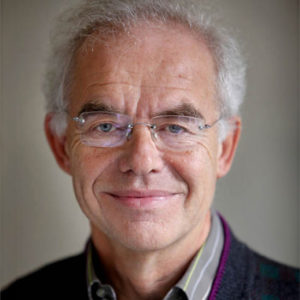Διαδικτυακή Διάλεξη
"It is necessary that the good always
has evil as its contrary."
Proclus and Simplicius on Plato’s Theaetetus 176 a
17 Απριλίου, 2024
Η διάλεξη θα πραγματοποιηθεί μέσω Zoom
7-9μ.μ. (ώρα Ελλάδος)
Image: Victor Orsel, Le Bien et le Mal, 1829-1832, oil on canvas, 307 x 205 cm, Musée des Beaux-Arts, Lyon, Inv. B 376
Abstract
If all things ultimately proceed from the One-Good, how can Socrates say that evil occurs by necessity and that it is contrary to the Good? In my lecture I will present how Proclus and Simplicius explain this provocative Platonic text. The necessity of evil is due to the fact that the procession of all things must include things that may change and go wrong. “If the creator had really wanted to create a world where no evil could occur, he would no longer be good.” (Simplicius). All forms of evil originate as defects, shortcomings in beings. They have no being of their own, but owe their reality to the fact that they are present in beings, parasite on them as para-hypostaseis. For that reason, Socrates in Theaetetus calls evil not a contrary to the good, but a subcontrary (hupenantion).

Carlos Steel (University of Leuven)
Carlos Steel is Emeritus Professor at the University of Leuven. Since his first publication, The Changing Self (1978), Steel has devoted most of his research to the Platonic tradition, with a particular emphasis on the philosophy of Proclus. He is well known for his critical editions of Proclus and his translations of Ps.-Simplicius’ Commentary on Aristotle’s On the Soul, and Proclus’ three treasises on providence, fate, free will, and evil, a subject directly related to his lecture.
